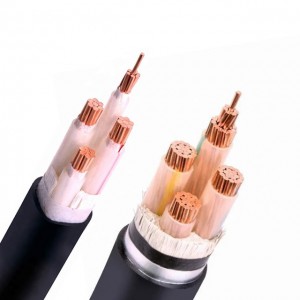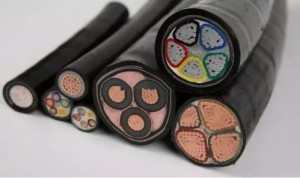Both YJY and YJV are wire and cable products commonly used in engineering and construction, and are used for power transmission lines. However, the models and specifications of the two are different. Is there any difference in the material and price of the sheath? Below, the editor will share with you the differences between YJY and YJV.
YJY Cable

Introduce
YJY——XLPE insulated polyethylene sheathed power cable, the power cable made of polyethylene material has excellent thermomechanical properties, superior flame retardant performance, and the ampacity is better than that of ordinary YJV power cables, and it also improves the performance of the cable. electrical performance and heat resistance characteristics.
YJ——cross-linked polyethylene
Y——polyethylene
Application
It can be laid indoors, in pipelines or in loose soil, provided that it cannot withstand tension and pressure; it can be used in distribution networks or industrial installations with a voltage level of 1-1000kV and above, such as power stations, urban lighting lines, and high-voltage tower power transmission , basement power transmission and other places.
Features
YJY cables are simple in structure, moderate in hardness and softness, and convenient for transportation, but they are not compressive, so care should be taken when storing or transporting them.
Advantage
According to the requirements of some users, YJY Power Cable can produce cables used in high-demand occasions such as flame-retardant (ZB), fire-resistant (NH), and low-smoke and low-halogen (WDZ). These cables have high safety and practicability, and are environmentally friendly. Strong performance.
YJV Cable
YJV cable is also called cross-linked polyethylene insulated PVC sheathed power cable. Among them, YJ represents cross-linked polyethylene insulation, and V represents polyvinyl chloride sheath. Among them, YJV also represents a copper core cable, while YJLV represents an aluminum core cable.
NO.1 laying method
1. YJV, YJLV copper (aluminum) core XLPE insulated PVC sheath is laid indoors, in trenches and pipes, and can also be buried in loose soil, but it cannot bear pressure and external mechanical force.
2. YJV22, YJLV22 copper (aluminum) core XLPE insulated steel tape armored PVC sheathed power cables are laid underground and can withstand external mechanical forces, but cannot withstand large tensile forces
NO.2 Use characteristics
The maximum rated temperature of the cable conductor is 90°C. When short-circuited (the maximum duration does not exceed 5S), the maximum temperature of the cable conductor does not exceed 250°C. The ambient temperature when laying the cable should not be lower than 0°C. The allowable bending radius when laying: the single-core cable is not less than 15 times the outer diameter of the cable; the multi-core cable is not less than 10 times the outer diameter of the cable.
NO.3 Selection method
The rated voltage of the cable is represented by U0/U(Um): U0 is the rated power frequency voltage between the conductor for cable design and the ground or metal shielding, U is the rated power frequency voltage between conductors for cable design, Um is The maximum value of the highest system voltage that the device can withstand. According to the different laying environment and load of the cable, the specifications and models of the cable are being designed and selected.
The non-armored type is suitable for overhead, indoor, tunnel, cable trench and other occasions, and cannot bear the external mechanical force. The armored type can be directly buried in the ground except for the applicable conditions of the non-armoured type. Can bear certain mechanical external force. Single-core cables are not allowed to be laid in pipes that generate magnetism. Special types of cables should be selected for flammable, explosive, chemically corrosive, high-temperature, low-temperature and other occasions.
The difference
First of all, YJY has better water resistance and low temperature resistance than YJV, and YJV has better flame retardancy than YJY. The maximum rated operating temperature of the YJY cross-linked polyethylene insulated power cable conductor is 90°C, which is higher than that of polyethylene insulated cables, so the current carrying capacity of the cable is also further increased. The maximum rated working temperature of the conductor is 90°C, and the maximum short-circuit temperature of the conductor shall not exceed 250°C, and the longest time shall not exceed 5 seconds. YJV cable has excellent thermomechanical properties, excellent electrical properties and chemical corrosion resistance. It also has the advantages of simple structure, light weight, and no restriction on laying height. It is a novel cable currently widely used in urban power grids, mines and factories.
Secondly, the sheath of YJV is PVC, which is a halogen-containing cable; the sheath of YJY is polyethylene, which is a halogen-free cable.
Finally, the price of YJY cable is higher. YJY is a copper core cross-linked polyethylene insulated polyethylene sheathed power cable, and YJV is a copper core cross-linked polyethylene insulated polyvinyl chloride sheathed power cable. However, the price of XLPE material is higher than that of PVC material, which results in the high cost of YJY.
Email: sales@zhongweicables.com
Mobile/Whatspp/Wechat: +86 17758694970
Post time: 2023-09-07






